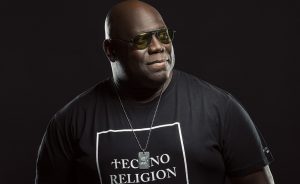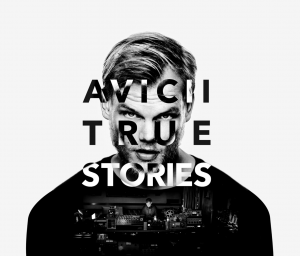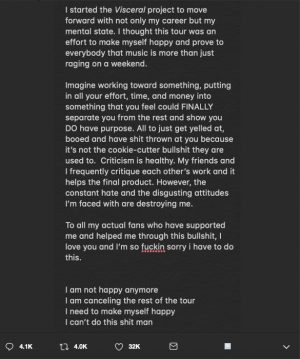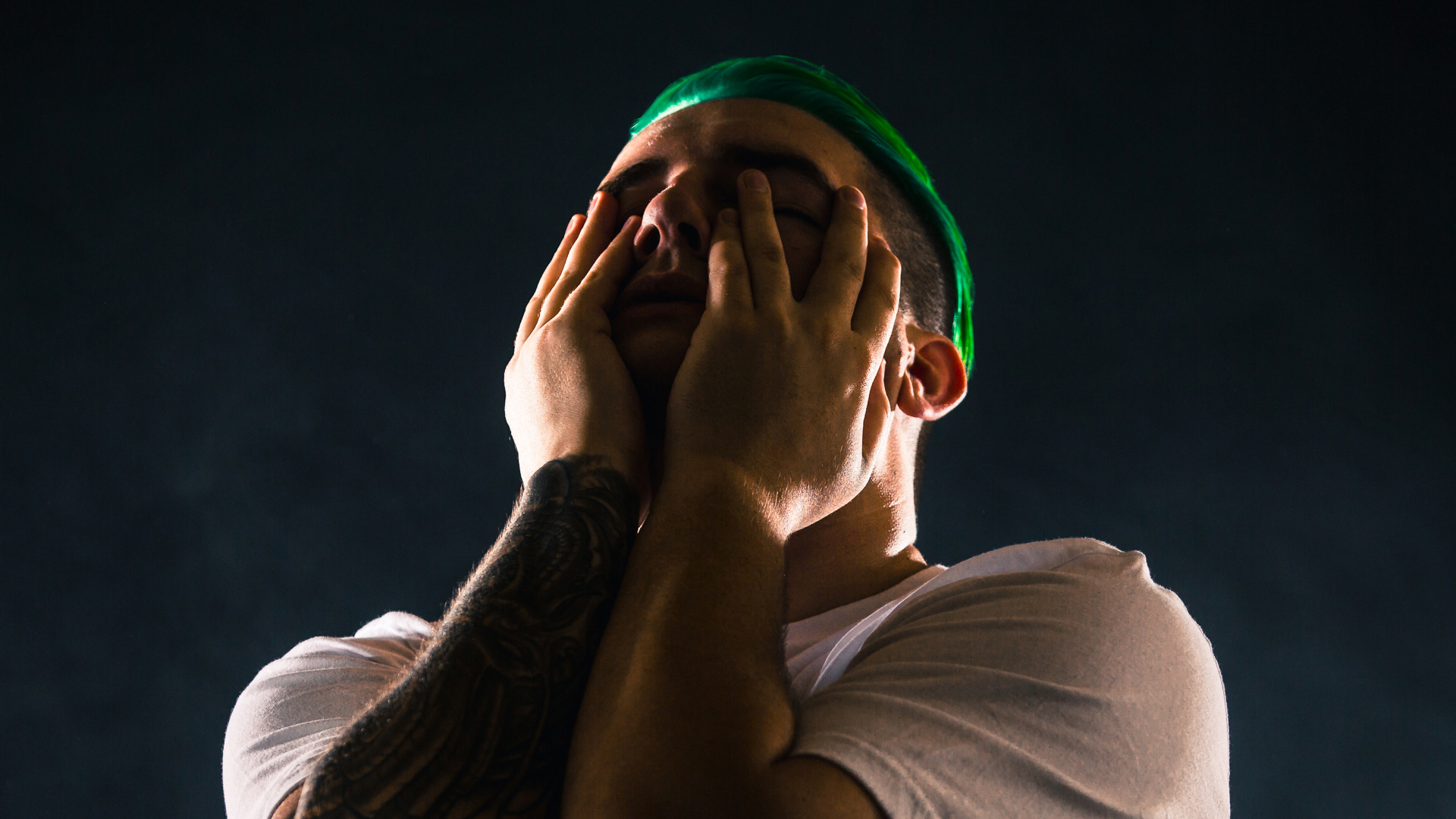In psychology, there’s this phenomenon called the “Celebrity Worshipping Syndrome“. The idea is people become obsessed with celebrities and begin to idolize them beyond a human level. People mimic their piercings and tattoos, fantasize about befriending them, and even get hooked on trivial gossip. It sounds crazy when it’s put on paper, but don’t we all do it to some extent?
In dance music, it is easy to idolize artists. How could we not? We spend hours memorizing the lyrics to their songs and hundreds of dollars on tickets to see them play. Our community links them to the very events that are the source of our best memories and praise them for creating the music that makes these events happen. We even follow them on social media, just to try and learn little pieces of their personality. With this kind of mindset, it only makes sense that we keep DJs on a pedestal.
However, when the pandemic hit, we were exposed to a different side of the artists. They are just as human as us, and therefore, they each have their own struggles. Many artists have come forward about the keyboard warriors that regularly bully them on the internet, but it runs much deeper. During this time, many artists are at risk of losing their livelihood. The effort they have put into perfecting their craft for years is at risk.
A campaign series, Music on my Mind, discusses mental health within the dance music community. It shows a transparent view of the effects of the spotlight on music producers and raises money to help struggling artists. In the series, Carl Cox opens up about his battle with his mental health during the pandemic.
In the interview, he talks about what the isolation has done to his personal and professional life. During the pandemic, Carl Cox lost his father. Due to the restrictions of quarantine, he had to attend the service virtually. There is no amount of fame or money that could ever make that situation bearable. Additionally, he was dealing with the possible end to the career he had spent a lifetime building. Artists make a majority of their money off of touring, and because there is no telling when that will be back, many are struggling to stay financially stable.

As tragic as it is, we know that there are quite a few of us that can relate to this. While we may not be losing a residency in Las Vegas, the pandemic has taken away many people’s careers and lifelong dreams. And, even if you’re family is healthy, we can all imagine the pain of losing a loved one in this way. With the success that Carl Cox has had in his career, it’s hard to picture him worried about the future. It’s important to remember that everyone is fighting their own battle, even if they seem larger than life.
That being said, it’s even harder to picture the worst-case scenario. However, with the death of i_o, we had to. Garett Lockhart (i_o) was only 30 years old when he passed. When someone dies so young, it usually means that there is something else going on. In his case, there might have been. We just don’t know. However, we all feel entitled to know. His personal life, and all struggles involved, were generally hidden from us. However, people didn’t think to care until it all came to a head. Which is reflective of what it means to be in the limelight.

Celebrities are expected to uphold a certain image. When famous people come forward about their personal struggles, they are quick to be discredited. It is hard for the general public to process that money and fame do not equate to happiness, but it doesn’t. This idea has become increasingly clearer with quarantine. We assume that DJs are living these lavish lives when they are at home, but that isn’t always the case. Like we saw in Gorgon City and Sofi Tukker‘s House Arrest music video, a lot of these DJs live a normal life when they aren’t touring.
While the pandemic opened a lot of our eyes, the issue was here long before 2020. In 2016, a study showed that 69% of musicians have experienced depression at some point in their career. This is especially relevant in the dance music industry, where many sleepless nights and long tours are expected. One of the most devastating examples of this is when the dance music community lost Avicii to suicide.
In the Netflix documentary, Avicii: True Stories, the darker side of the EDM giant’s story was shared. Through accounts from Avicii, his family, and his friends, we found out that Avicii was never comfortable in the spotlight. He had social anxiety, which was only amplified by the massive tours he was doing. He heavily abused alcohol and pills to cope with the pace of his lifestyle and the physical and mental stress finally became too much to handle. Even though he resigned from touring in 2016, he still felt the pain of the pressure of the industry.

Once Avicii stopped touring, the people close to him saw a shift in him. Avicii was getting better. He had given up on of the biggest financial assets of his career, but he was finally able to focus on his music and mental health again. He was healthier, happier, and doing what he loved. However, we know that this wasn’t the case. On April 20th, 2018 Avicii chose to end his time in this world. While it was shocking to many, Avicii did try and ask for help. We can hear it in his lyrics, in songs like SOS. Many DJs use their art as a form of self-expression, and we just forgot to listen.
People tend to turn a blind eye to the real emotions of people in the spotlight. Avicii was one of the most popular, wealthy, and successful DJs in history, but that doesn’t mean that he was exempt from pain. Even though he seemed fine on the outside, it doesn’t mean that he was. Each person, regardless of their stature, has dark moments. We put Avicii on a pedestal and stopped viewing him as a human even though he never stopped being one. We can’t change what is in the past, but we do still have a choice in the future.
Especially since the growth of social media, there has been an intense rise in cyberbullying, specifically to famous people. People feel liberated to be cruel when they can hide behind a screen. That’s not ok. That will never be ok. Even though it seems like someone with millions of followers will never see a comment, they still do. It must be incredibly stressful to be an artist. Constantly in the limelight, people always critiquing your body, and fans criticizing your art.
Getter is a DJ that knows this all too well. In 2019, he decided to pivot his style and enter a new genre. He was no longer invested in the music he had been creating. So, he refound his passion and began creating art that fulfilled him again. He decided to show his new style to the world with his Visceral album followed by a matching tour. However, the tour was cut short when he was booed off the stage in Houston. After the event, Getter took to social media announcing that this would be his last tour.

Although he had heavily publicized his new style, fans still expected the old Getter at the show. He was verbally attacked in person and on social media. The art that he had been so proud of was publically ridiculed and his tour was canceled. Since then, he has come back into the festival scene with both music and touring. On behalf of DJs like Getter, do your research. Don’t show up to a show promoting an album you don’t like and definitely don’t complain if you didn’t do your research.
We aren’t bringing all of this up to make you feel bad or to turn DJs into martyrs. Instead, we simply hope to provide some perspective on the human side of the music industry. Behind all of the lasers and pyrotechnics, there are real people up on that stage. And, as real people, they feel both the good and bad sides of life.
So, if you’re looking for a sign, this is it. We are in such an unsettling time and we need each other more now than ever. Reach out to your friends, even if they seem like they are fine. Be there for people, even if they have never needed you before. Ask your friends the hard questions, even if they seem untouchable from the world. The dance music community is all about love and kindness, so we know you already have it in you.
Featured by Ryan Johnson








